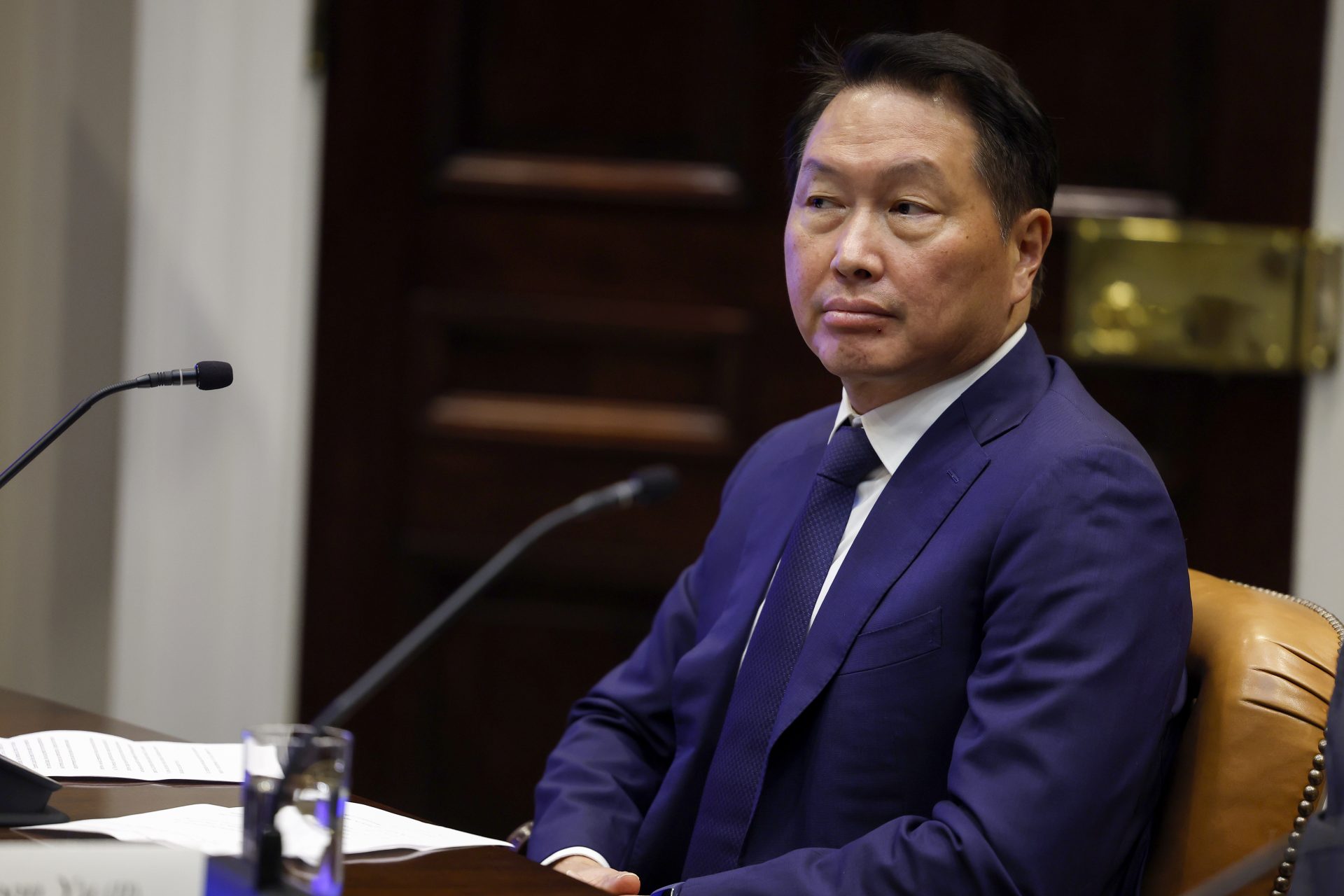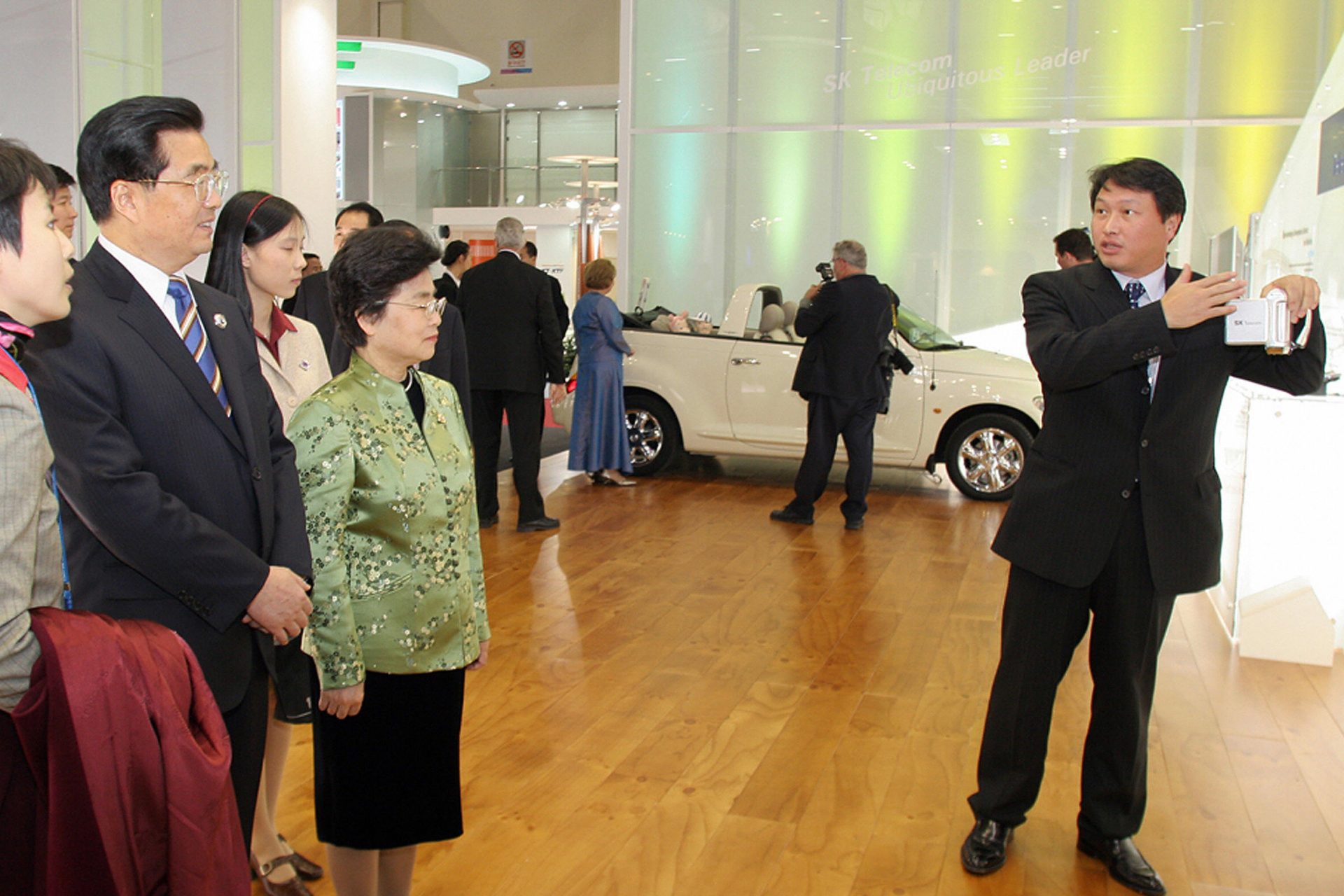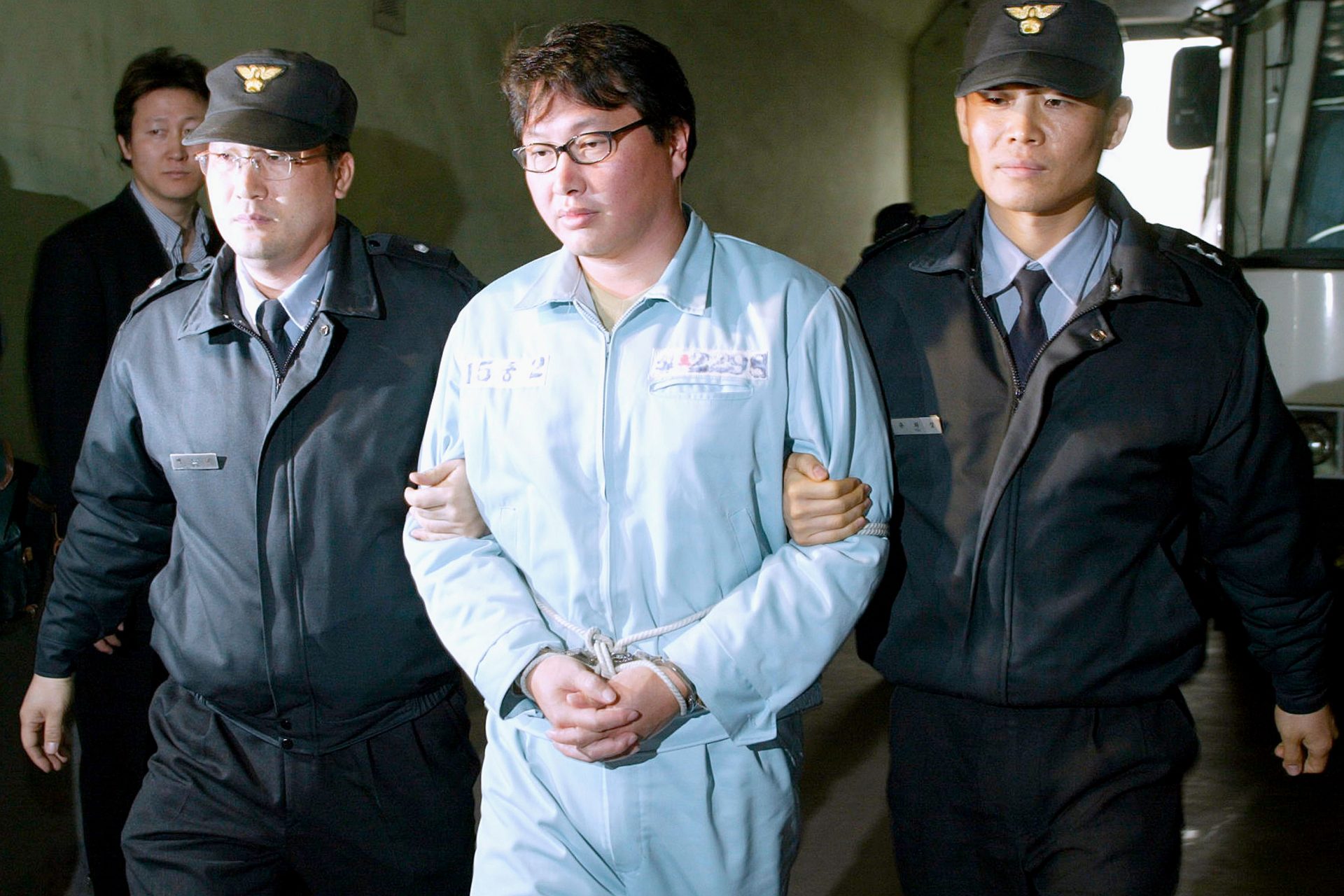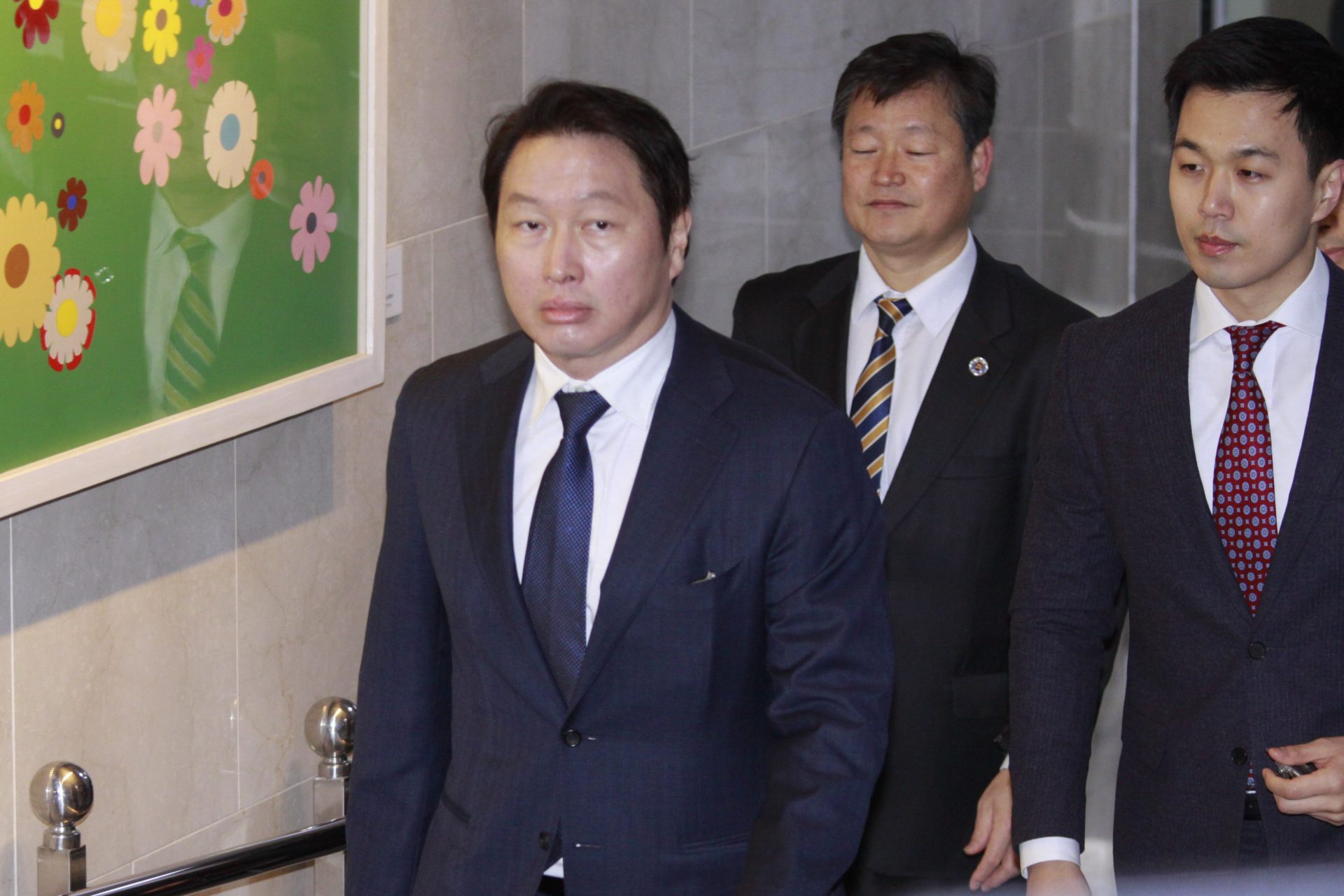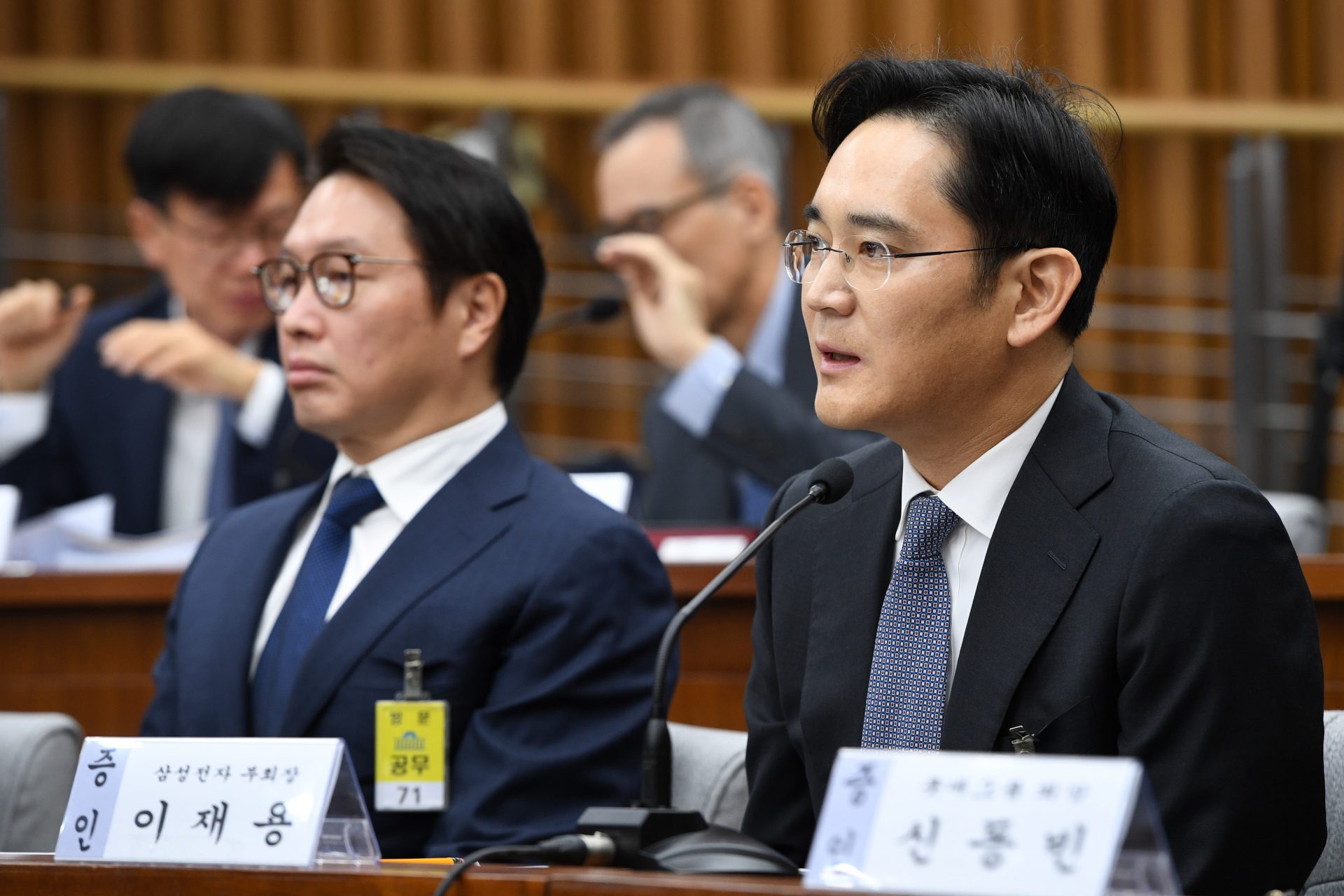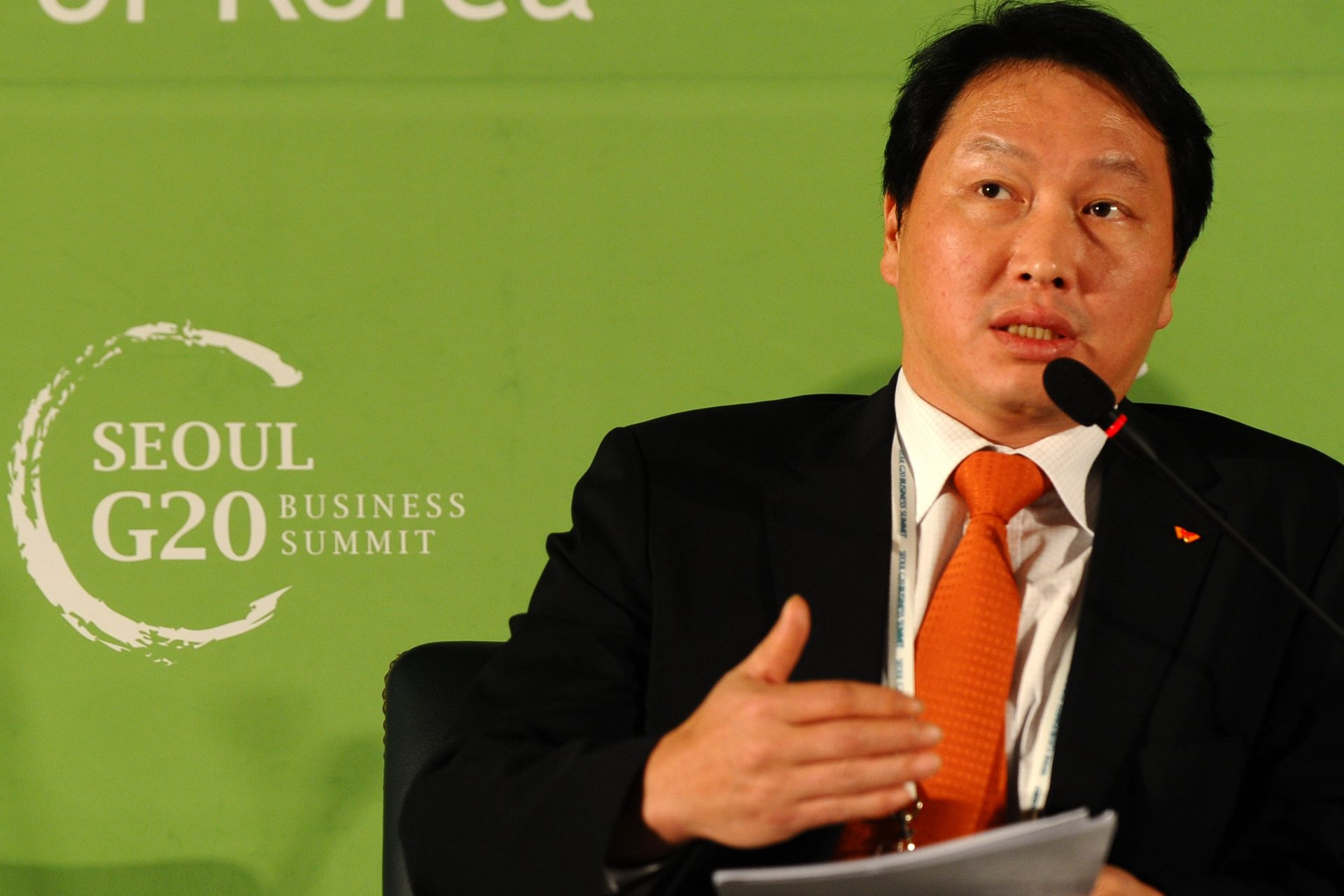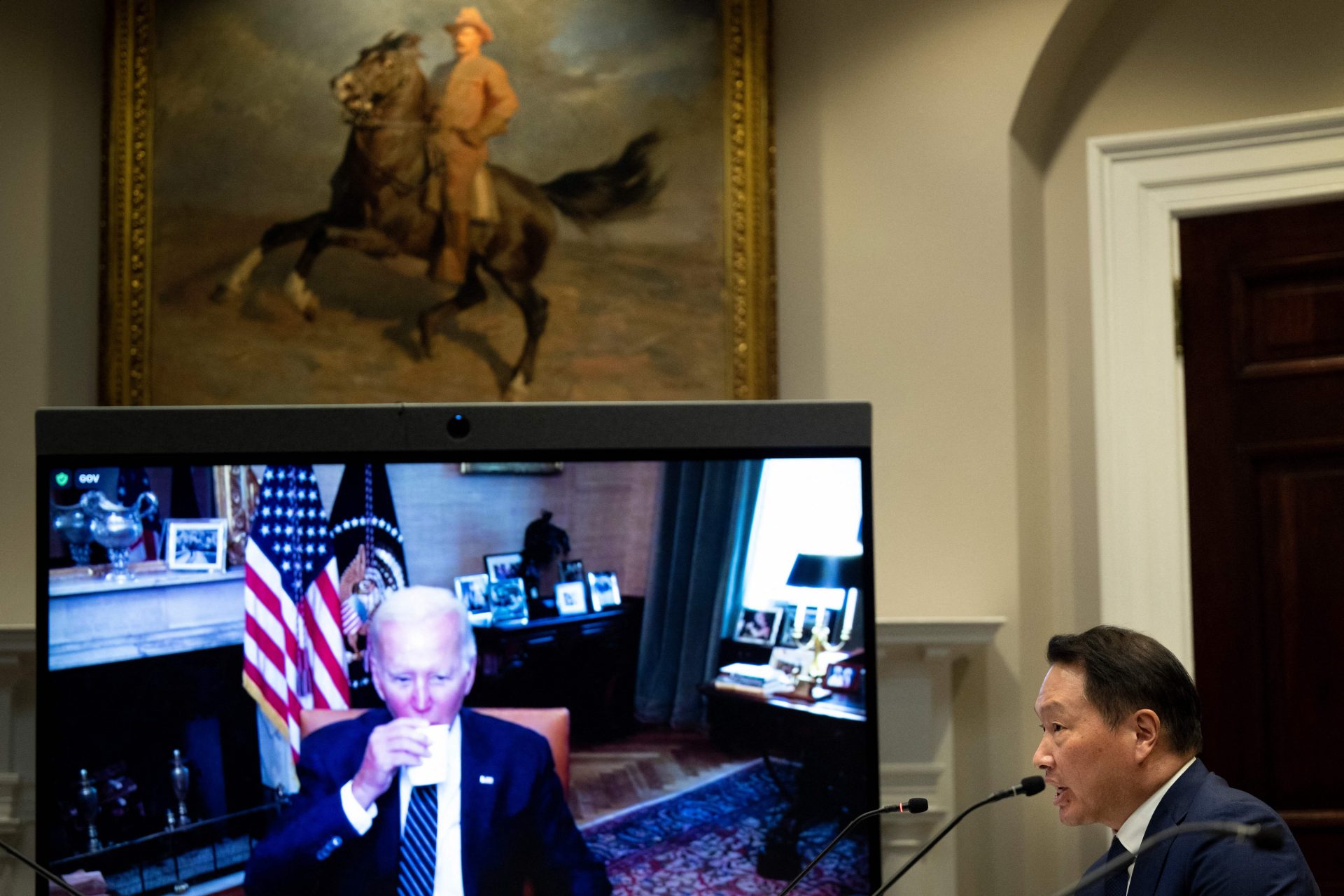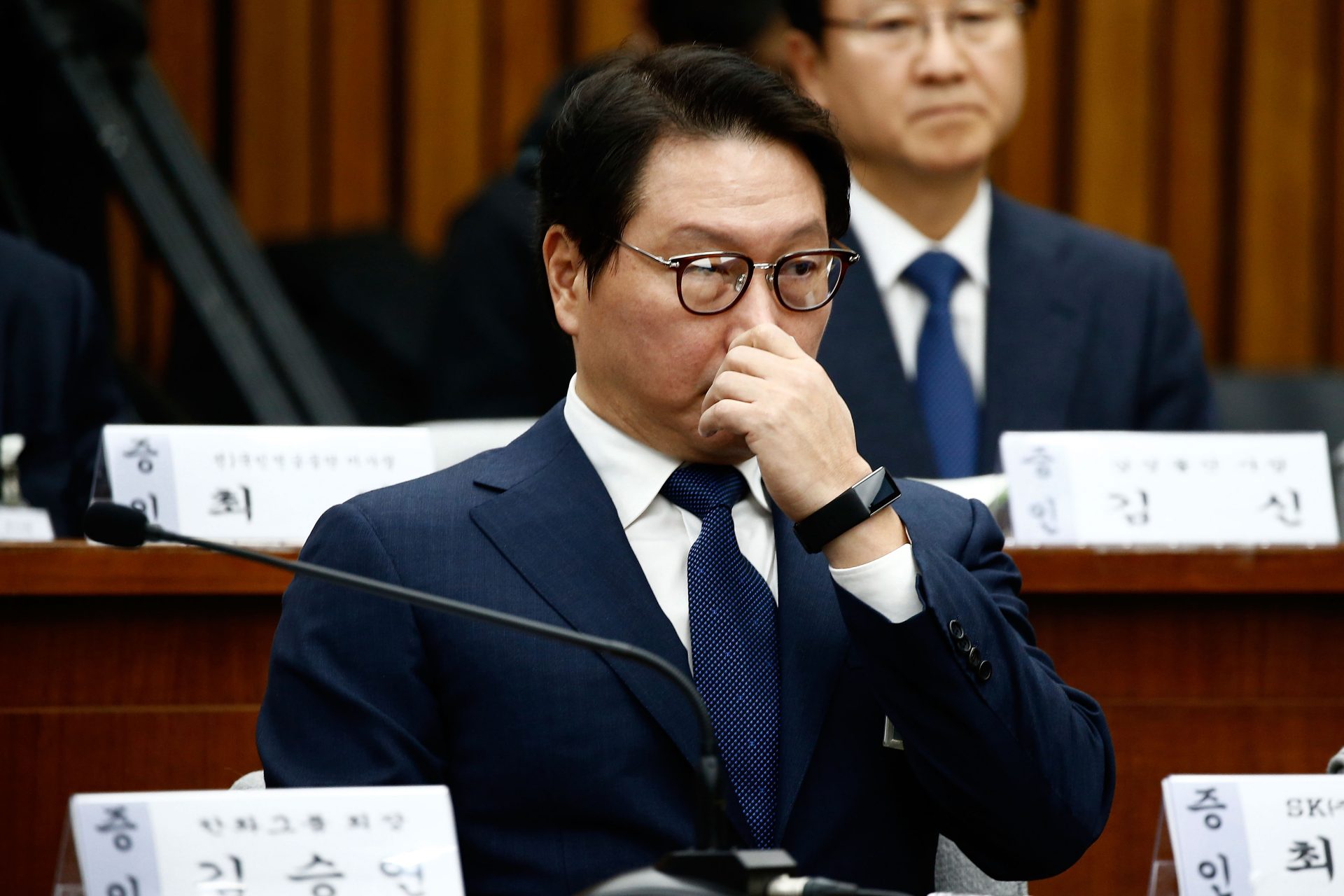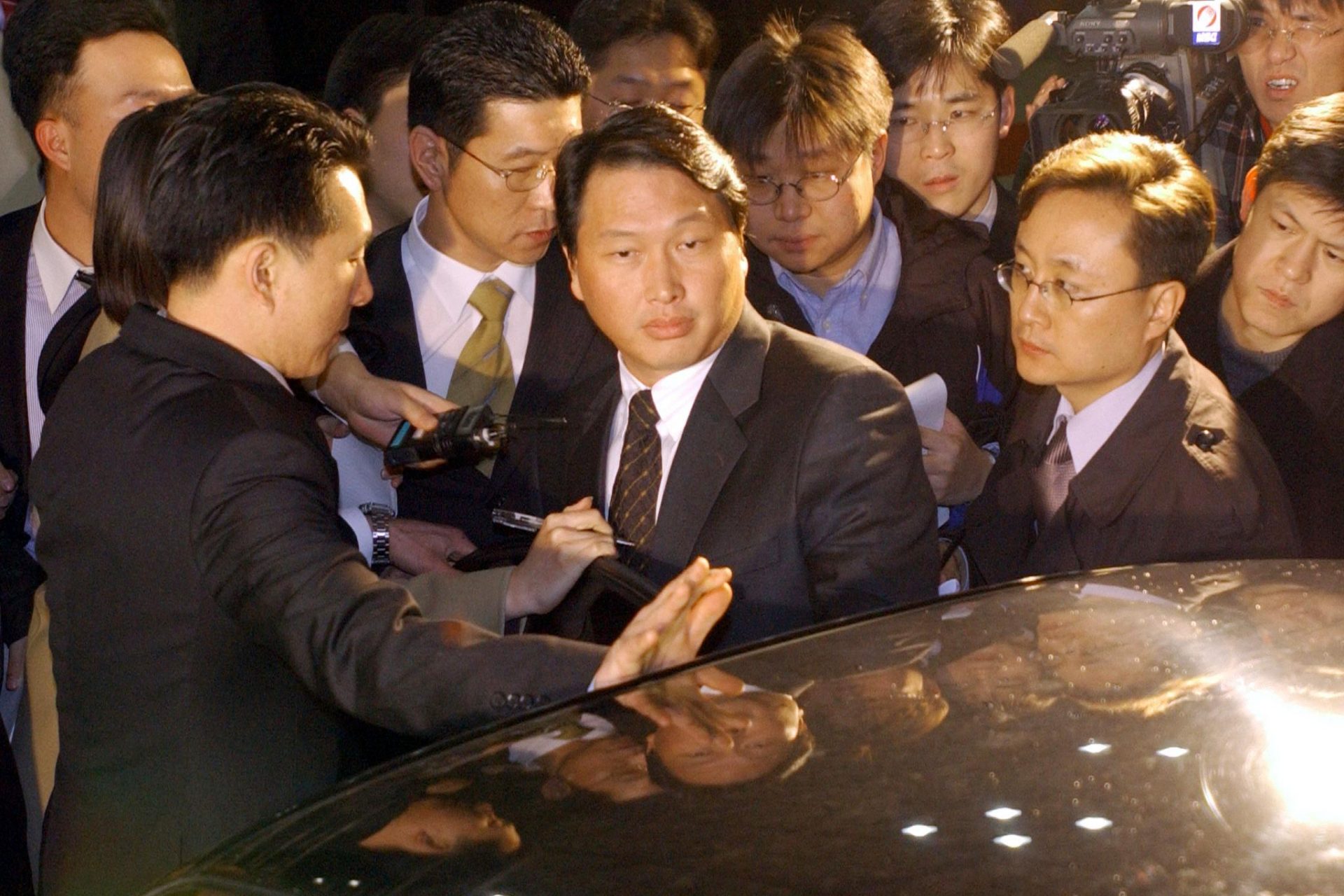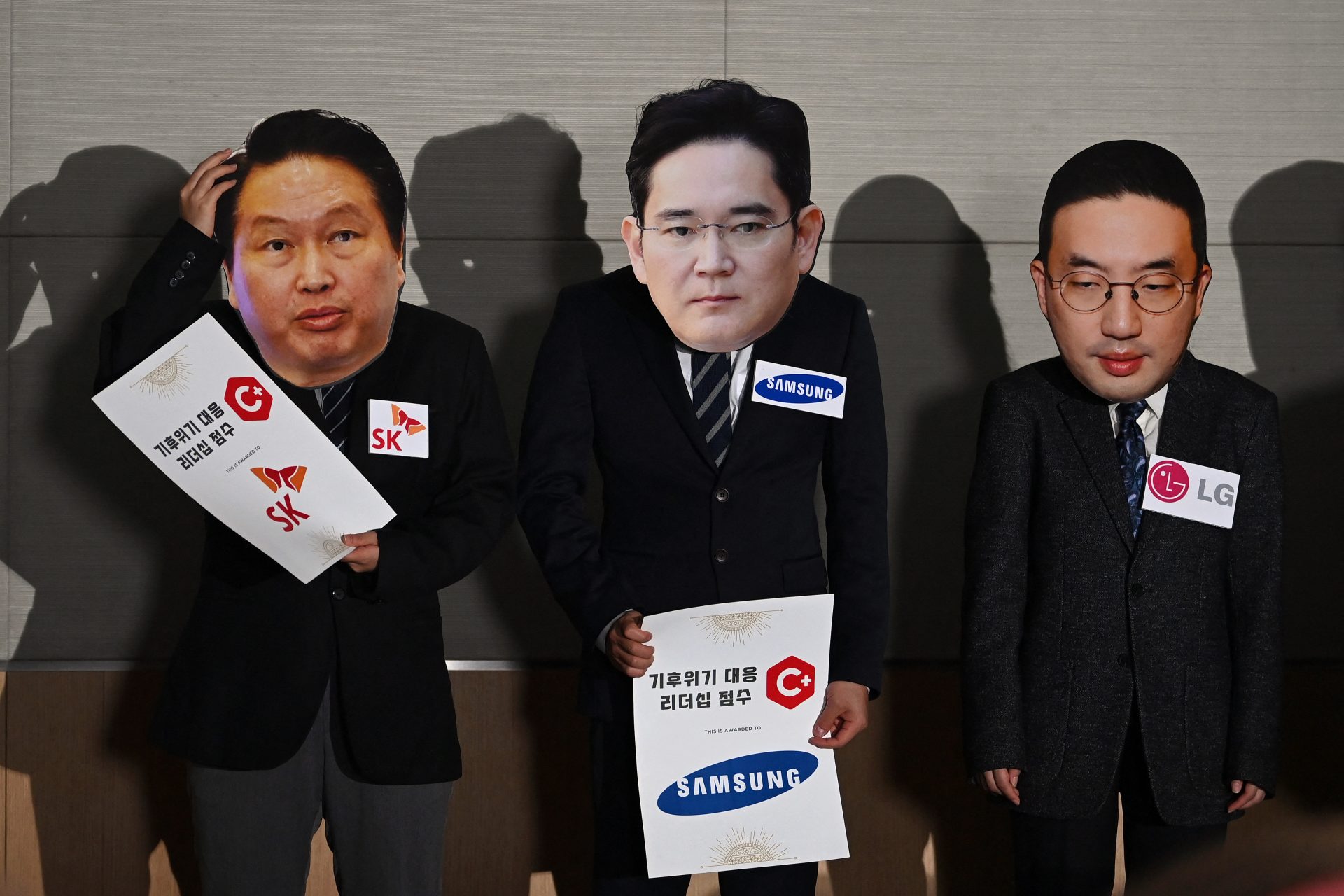The divorce that has put the Korean economy at risk
It was 1998 when Chey Tae-won and Roh Soh-yeong got married at the Blue House in Seoul in what was the wedding of the century in South Korea. The wedding would unite in marriage the daughter of the president of the country with the first-born son of the president of the Sunkyung Group, one of the largest conglomerates in South Korea.
The couple had met at the University of Chicago, where they were both pursuing a PhD in Economics. Since that wedding, the family and conglomerate fortune has only grown. Chey Tae-won took control of Sunkyung, which was renamed SK Group, and whose combined subsidiaries are worth more than $113 billion.
And, among these subsidiaries, there is SK Telecom, the largest telecommunications group in the country, or SK Hynix, the second largest manufacturer of memory chips in the world, only behind Samsung Electronics.
Photo: Web SK Group
But while they were growing politically and economically, the couple was failing emotionally. In 2015, after spending several months in jail for economic crimes, Chey Tae-won confessed to having a lover, with whom he apparently had a child out of wedlock.
Thus began a divorce process that has shaken the economy of an entire country controlled by the chaebol, conglomerates run by powerful families who, in many cases, are above the law.
The distribution of the assets of Chey Tae-won and Roh Soh-yeong could have dramatic consequences for SK Group, in case their shares become too divided, according to the media 'Asia-Nikkei'. In December 2022, a Seoul family court awarded Roh Soh-yeong $50.2 million but none of the SK Inc. shares belonging to her soon to be ex-husband when there is an agreement.
Roh Soh-yeong's request involves receiving half of the 17.5% stake that Chey Tae-won has in his possession. Forbes estimates Chey Tae-won's fortune at $1.4 billion and Roh Soh-yeong at 0.01%.
Obviously, Roh Soh-yeong has appealed to the Seoul High Court, aware that this will be the largest divorce settlement in South Korea's history and will be a key ruling for the future of women in the country.
And this case has been taken as a weapon to criticize the patriarchal aspect of the chaebol and the residual role that has historically been given to women in these conglomerates, based on the fact that the sentence seemed to be designed to preserve the majority participation of Chey Tae-won at SK Group.
The problem with this divorce is that the future of a company of such magnitude had never been at stake, nor the fact that one part of the couple was part of a political dynasty as powerful as that of Roh Soh-yeong.
Furthermore, according to South Korean laws, domestic work must be assumed as a contribution to the couple's common property and this must be divided equally. That is what Roh Soh-yeong appeals to, who maintains that she has dedicated her life to her family and her three children together with Chey Tae-won.
In addition, Roh Soh-yeong's lawyers have suggested that the influence of her father, the president of South Korea between 1988 and 1993, has also helped increase the couple's assets, something that is denied by SK Group.
For this reason, legal experts do not understand the agreement of 50.2 million dollars offered, which represents 1.2% of the family assets, when they estimate that Roh Soh-yeong owes between 30 and 40%. Pending the ruling of the Seoul High Court, it seems clear that the economic foundations of South Korea will continue to shake for years, due to infidelity.
More for you
Top Stories



